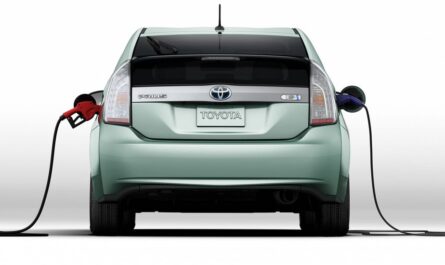
Introduction
With the rapid growth of electric vehicles on roads across the world, battery technology plays a crucial role in determining the future of mobility. Over the last few years, EV battery costs have decreased significantly. However, high upfront costs remain one of the key barriers for mass adoption of EVs. To tackle this issue, battery leasing has emerged as an innovative business model in the industry.
What is Battery Leasing?
Battery leasing or battery-as-a-service allows customers to lease the battery separately from the vehicle purchase. Under this model, automakers or independent battery service providers own and maintain the batteries. Customers pay a monthly or annual fee to access the battery and are responsible only for charging and normal battery usage. When the battery’s capacity reduces over the years, it can be replaced by a new upgraded one. This helps bring down upfront vehicle costs.
Benefits for Consumers
Reduced upfront vehicle cost: Leasing the battery reduces the initial purchase price of the EV by about 30% on average. This improves affordability significantly.
Lower total cost of ownership: With no large battery replacement costs, the total projected ownership expenses over 5-10 years are lower than buying the battery upfront. Payments are more manageable.
Flexibility: Customers have flexibility to upgrade batteries as new improved versions become available by paying an annual fee. They are driving the latest battery technology over the lifespan of the vehicle.
Peace of mind: Battery leasing transfers risks like battery degradation, repair/replacement costs to the manufacturer or leasing company. It reduces range and performance anxiety for consumers.
Benefits for Automakers
Guaranteed recurring revenue stream: Battery leasing provides a long term fixed monthly/annual subscription revenue stream rather than a one-time battery sale.
Better battery utilization: Used batteries from upgraded vehicles can be re-purposed for energy storage or second-life applications, improving overall battery utilization.
Reduced risk exposure: Leasing shifts risks like battery degradation, lifetime costs from automakers to leasing companies. This reduces financial burdens and enhances predictability.
Boost to EV adoption: The reduced upfront price barrier and flexible ownership modelbattery leasing enables significantly accelerates EV adoption rates.
Battery Leasing Models in Market
1) Subscription model: Companies like Nio offer battery swapping or subscription services where drivers pay a monthly fee for unlimited battery swaps and upgrades.
2) Leasing with vehicle purchase: Some automakers like Mazda and Nissan provide a battery leasing option for certain EV models where the monthly payments are bundled with the vehicle loan.
3) Standalone leasing: Independent battery-specific leasing companies like Renova in Japan have emerged which lease out battery packs to EV buyers for a monthly fee independently of any vehicle purchase.
4) Pay-per-use model: Startups are also exploring innovative pay-per-use battery rental models where drivers pay based on battery consumption or driven miles.
Challenges to Overcome
Vehicle design compatibility: Batteries need to support swapping/upgrade requirements which require compatible vehicle design from early stages.
Standardization: Lack of global battery standards impacts interchangeability and secondary use potential of leased batteries across brands.
High initial investment: Mass production of different battery variants, establishing swapping/leasing infrastructure requires huge upfront capital.
Battery technology risk: Rapid technology advancements could make some leased battery packs obsolete sooner than expected.
Consumer acceptance: Persuading drivers to lease rather than own such a crucial vehicle component as the battery still faces adoption challenges.
The Road Ahead
If automakers and leasing companies can successfully address challenges like cost, standardization and accelerate infrastructure deployment, battery leasing is expected to become mainstream alternative to ownership in the next 3-5 years. It has the potential to disrupt the EV industry by further bringing down costs and accelerating mass adoption of electric mobility. Regulations may also evolve to promote leasing models and secondary battery applications. Overall, battery leasing promises to trigger the next phase of growth in EV industry.
Conclusion
In summary, battery leasing has emerged as promising business strategy in the context of evolving EV industry and battery technologies. It addresses the key demand side barrier of high vehicle costs while offering new revenue streams. Though compatibility and technology risks remain, leading players who successfully demonstrate its viability at scale will have an edge in the dynamic EV marketplace of future. Widespread deployment of battery swapping and leasing models will be a big disruptor in the next decade, catalyzing faster energy transition.
*Note:
- Source: Coherent Market Insights, Public sources, Desk research
- We have leveraged AI tools to mine information and compile it



